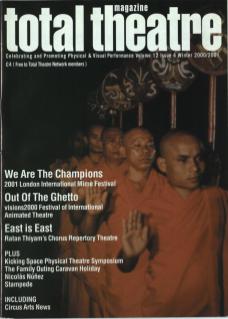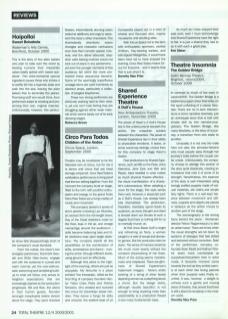The power of Ibsen's A Doll's House lies in the undercurrents beneath the action, the unspoken subtext between the characters. The power of Shared Experience lies in their ability to physicalise emotions. A brave, or some would say strange, choice then to stage Ibsen’s classic.
Past productions by Shared Experience, such as Mill on the Floss, Anna Karenina, Jane Eyre and War and Peace, have revelled in what makes so much physical theatre effective – the visual manifestation of a character's subconscious. When adapting a
novel for the stage, this styles serves them well. However, a playscript such as A Doll’s House has already been fully dramatised. This production, therefore, inevitably spoon-feeds its audience, as every thought and deed is shoved down our throats to such a degree that there is nothing left for us to mentally munch on.
At first Anne-Marie Duff is bright and refreshing as Nora, a woman caught in a web of sexual and domestic games. But the production lets her down. The sense of menace would be felt much more keenly without the constant physicalising of her fears. Much of the acting seems melodramatic and misplaced. There are glimmers of Shared Experience's trademark imagery – Nora's erotic twisting of a string of silver beads depicting woman as a plaything struck a chord. But the design alone, although visually beautiful, is not enough to bring anything more than predictability to a production flawed in too many fundamental ways.
As much as I have enjoyed their past work, even I must acknowledge that Shared Experience have the right to fail. It is just a shame they had to do it with such a great play.

